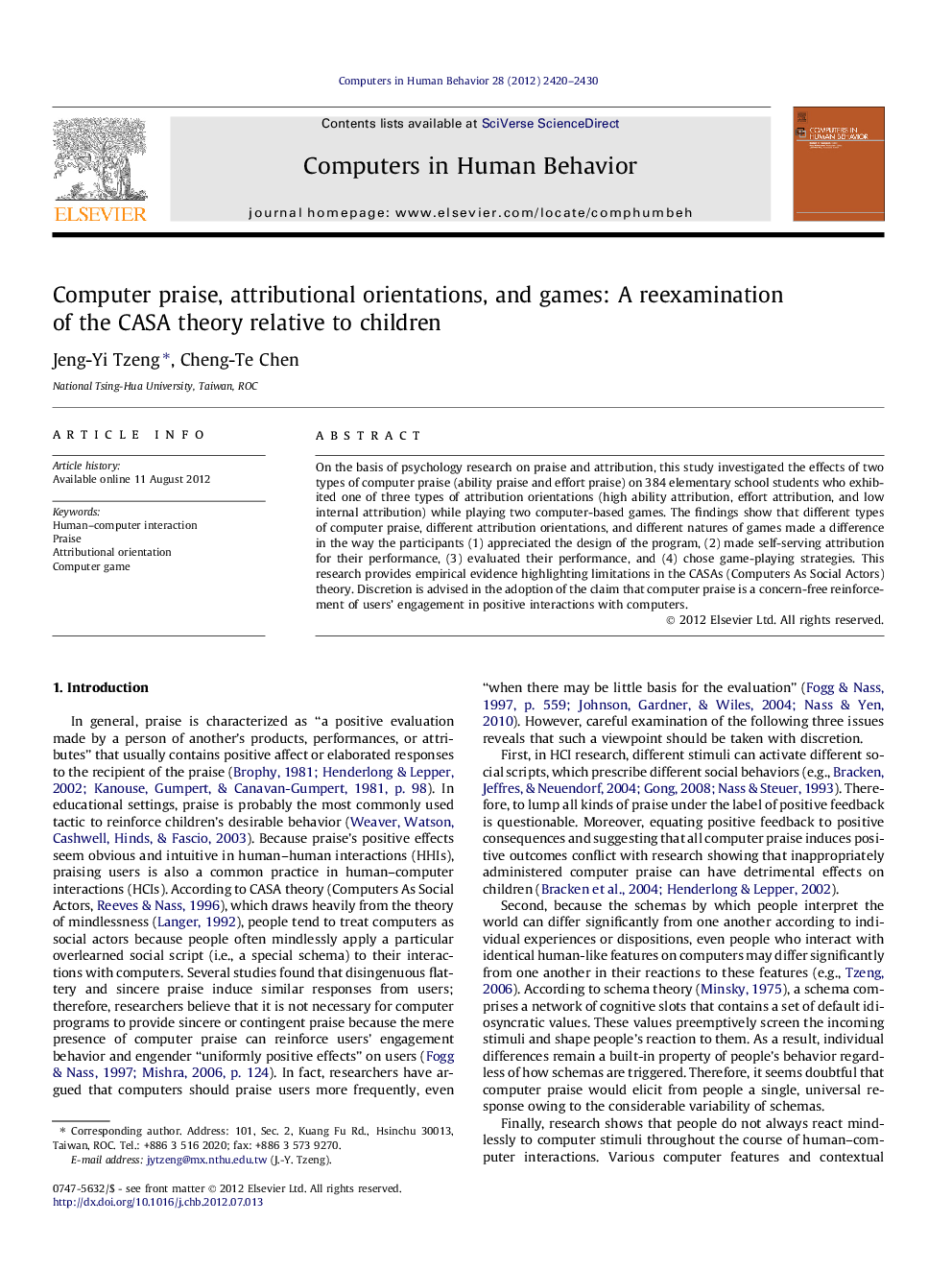| Article ID | Journal | Published Year | Pages | File Type |
|---|---|---|---|---|
| 351330 | Computers in Human Behavior | 2012 | 11 Pages |
On the basis of psychology research on praise and attribution, this study investigated the effects of two types of computer praise (ability praise and effort praise) on 384 elementary school students who exhibited one of three types of attribution orientations (high ability attribution, effort attribution, and low internal attribution) while playing two computer-based games. The findings show that different types of computer praise, different attribution orientations, and different natures of games made a difference in the way the participants (1) appreciated the design of the program, (2) made self-serving attribution for their performance, (3) evaluated their performance, and (4) chose game-playing strategies. This research provides empirical evidence highlighting limitations in the CASAs (Computers As Social Actors) theory. Discretion is advised in the adoption of the claim that computer praise is a concern-free reinforcement of users’ engagement in positive interactions with computers.
► This study investigated the effects of computer praise on children with different attribution orientations. ► CASA theory describes only a partial picture of how computer feedback influences children. ► The ways computer praise is phrased does make a difference. ► The effects of computer praise are contingent upon the nature of the particular program being used. ► Computer praise is not a concern-free reinforcement of users’ engagement with computers.
